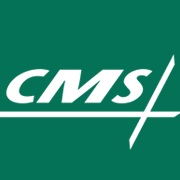Top 3 Health Insurance Industry Headlines of December 2016
Enjoy December's three most popular headlines about the health insurance industry below!

- Now that the final month of the year is wrapping up and everyone is planning their New Year’s celebrations, a review of the most popular headlines for the health insurance industry may be beneficial as we head into 2017.
Patients Need More Guidance on Medicare Prescription Drug Plans

Last month, a Walgreens survey found that 34 percent of Medicare beneficiaries have not taken the time necessary to understand their Medicare prescription drug plan and proceed with enrolling in the health plan without reviewing it. Commercial payers as well as public payers can use this information to better educate their consumers in the importance of understanding the entirety of their health plans before signing up. To read the article about the Walgreens survey, click here.
How the 21st Century Cures Act will Impact Healthcare Payers
This past month, the House of Representatives and the Senate passed the 21st Century Cures Act. President Obama signed the legislation into law as well. The way that the 21st Century Cures Act will impact the health insurance industry is through the creation of small business health reimbursement arrangements (HRAs).
Small businesses will be able to reimburse employees for their healthcare costs through the HRAs. The maximum that employers will be able to offer their workers via the health reimbursement arrangements is $4,950 for individuals or $10,000 for a family plan. To read more about how the 21st Century Cures Act will affect the health insurance industry, click here.
Why Value-Based Care Reimbursement, MACRA are Here to Stay
With the recent presidential election leading to certain uncertainties for the health insurance industry, stakeholders and those in leadership positions will need to focus on the bipartisan regulations that are going to remain in place for years to come. The move toward value-based care reimbursement is not going anywhere and MACRA regulations along with the Quality Payment Program are likely to stay as well.
Both the Democratic Party and the Republican Party have been interested in payment innovation that would reduce overall Medicare spending. Private payers have also been focused on transitioning to value-based care reimbursement. For instance, Humana is currently serving 63 percent of its members in a value-based care arrangement. To learn more about why MACRA regulations and value-based care are here to stay, click here.
Dig Deeper:
How Medicare, Medicaid, and CHIP Guide the Health Payer Industry
How Payers Should Prepare for Value-Based Reimbursement
